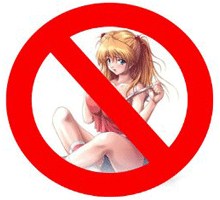Blocking Of Child Pornography By The ISPs
 Late last month, there was a news report stating that nine (9) of the leading Japanese Internet service providers (ISPs) started blocking access to child pornography websites as part of their efforts to crack down on the spread of sexually explicit images of children. The nine (9) companies include NEC, Biglobe, NTT Communications and KDDI and these ISPs cover about fifty to seventy (50-70%) percent of households with Internet access in the country.
Late last month, there was a news report stating that nine (9) of the leading Japanese Internet service providers (ISPs) started blocking access to child pornography websites as part of their efforts to crack down on the spread of sexually explicit images of children. The nine (9) companies include NEC, Biglobe, NTT Communications and KDDI and these ISPs cover about fifty to seventy (50-70%) percent of households with Internet access in the country.
Japan is seen as a major global source of child pornography in photo and video form despite having outlawed the production and distribution of such materials. The move was part of the country’s stepped-up efforts to contain the problem of exploiting their children to become the subjects of pornography. Ironically, the possession of child pornographic materials remains legal in Japan.
In the initial effort of Japan to block child pornography, the Internet Content Safety Association was established in March with 21 member companies. The association made an initial list of more than one hundred (100) internet addresses subject to blocking based on information from the Internet Hotline Center Japan which monitors illegal and harmful materials in the Internet. Four (4) major Internet search engines, including Google and Yahoo Japan, are also ensuring that sites subject to blocking do not show up in their search results.
In the Philippines, the Anti-Child Pornography Act of 2009 was enacted to protect the Filipino children against any form of abuse where they could be used as an object of pornography. Also known as Republic Act No. 9775, the law provides that the Internet service providers in our country filter the web and block the uploading and downloading of child pornographic materials by Internet users in the country.
In the last consultative meeting that I attended in the middle of last year regarding the implementation of the web filtering provision of the law, the discussion was about how the ISPs would do the filtering. The head of the agency regulating the operation of the ISPs instructed the Inter-Agency Council Against Child Pornography to make a study on how the web filtering for child pornographic contents is being done in countries like Singapore and Saudi Arabia and make recommendations on how to implement the law regarding the web filtering provision. That was the last time I heard about blocking child pornography by the ISPs. I wonder if the system is now installed and working at ISP level.




Using child as an object of pornography is the sickest things I could ever think of. Strict law should be enacted to block each and every such sites that are related with child pornography.
Thank you for your comment. I definitely agree with your abhorrence of child pornography.
My point on this blog is it took Japan only two (2) months to block child porn and they do not even have a law mandating their ISPs to do so. The Philippines has a national law commanding ISPs to filter our web and block child porn but nothing happens yet after almost one (1) since the law’s IRR came into effect.
So its need some strict law to prevent this site abusing people mind.I think how china had blocked all blogspot site,every government should block all those porn sites.
Actually, I am amazed as to how even such industry has a market. I really loathe anyone who’s involved with such degree of child abuse. If the country’s ISPs haven’t implemented anything even 1 year after the effect, I think more voice should be raised regarding it in Philippines – or perhaps such might have already been implemented in the ISP system. Don’t know how you’re supposed to check its effect though.